Biomedical Technology student, James Roddy, has spent this past semester interning for Crothall Healthcare. In his own words, this is what the experience has meant to him.
According to the company’s website, “Crothall Healthcare was founded in 1991 to address the need for a specialized, high quality, innovative, and responsive support services company, exclusively servicing the unique needs of the healthcare industry.” Crothall Healthcare is composed of five specialized areas, which are: Environmental Services, Patient Transport, Laundry & Linen, Facilities Management, and Clinical Equipment Solutions. In 2013, Crothall Healthcare was recognized as one of “The Top 100 Best Places to Work in Healthcare,” companies, as sited by the Crothall Website. Crothall Healthcare bought Crest Health Services in 2014 and assumed the account at Baptist Health Systems. Biomedical Equipment Repair belongs to the Clinical Equipment Solutions Section of Crothall Healthcare.
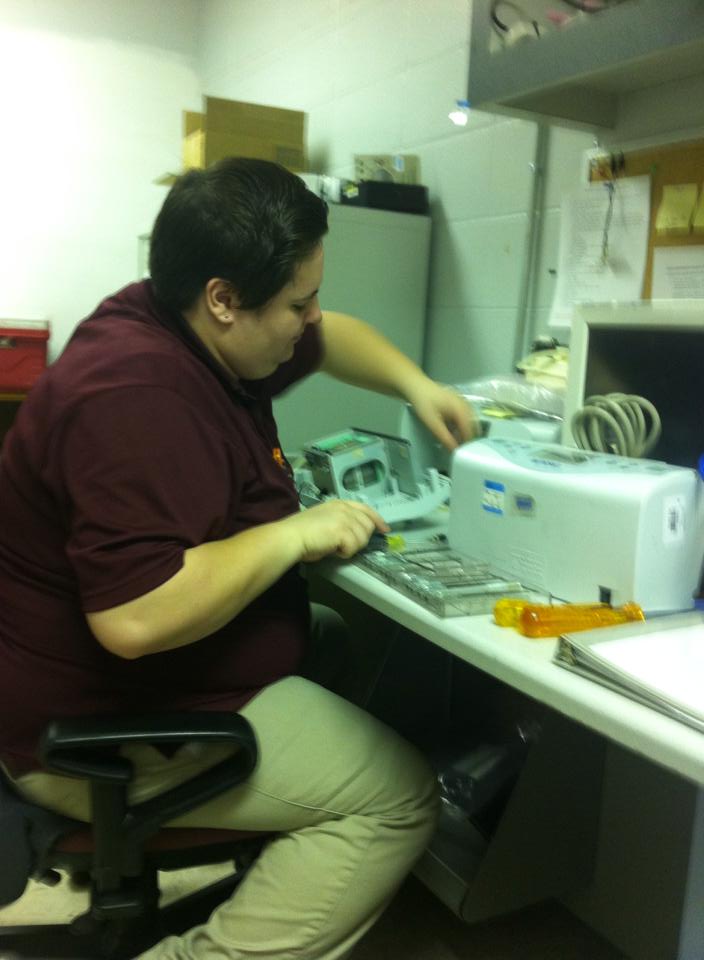
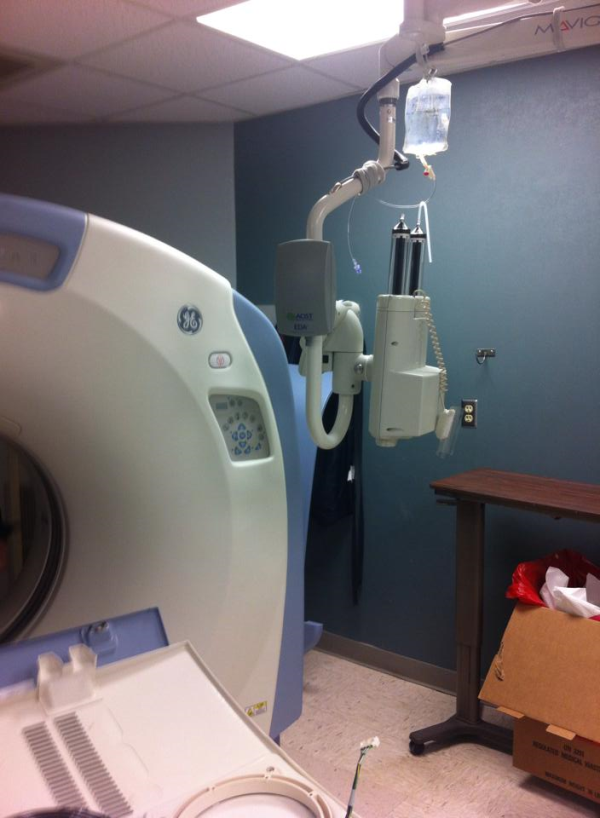
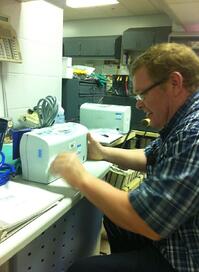
The Biomedical Superintendent at Crothall is Mr. Wayne Cumbie. Both he and his lead Biomedical Technician, Mike McCaphree, assigned me to various technicians throughout the semester. I and another Intern, Lauren Tapley, usually worked with a general biomedical technician, Ashley Marcoffe. During my time at Crothall Healthcare, I gained extensive experience with the repair of Biomedical Equipment, Hospital Procedure, and Crothall’ preventative maintenance system.
The first few weeks at Crothall, we spent learning our way around Baptist Hospital taking tours of different areas of the Hospital, such as: Intensive Care Units, Emergency Rooms, Operating Rooms, Surgery Rooms, Oncology, and Central Supply. As we went on these tours we were shown the different types of equipment that coincides with each area. Our first repair experiences dealt with Kendall Foot pumps. These pumps are very portable and usually see abuse. We found cords to be torn, chassis to be broken, hose connection pieces broken, along with various other code errors. They are good troubleshooting skill builders, and there were usually enough of them to keep us busy during slow times. Another piece of equipment that we worked with was the Sigma Spectrum Infusion Pump. These pumps were under a lease contract so we were limited to only certain repairs. At times other Biomedical Technicians would let us go with them to see bigger equipment such as CT Scans, and C- Arm portable and stationary imaging equipment. We spent time assisting technicians with Steris Autoclaves, and Sanitizers. There were some repair calls that brought us into the Neonatal area of the hospital, for instance a Geraff incubator was making a loud noise after it had been cleaned, later we found that the fan motor was going out. Another time we went to tighten a patient monitor that kept tilting too far forward. One of the more exciting repairs took us to the Imaging department where we got to help change out encoders on two GE CT scans. Another time we helped install an O2 sensor in a Pulmanary Function Lab.
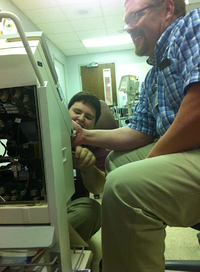
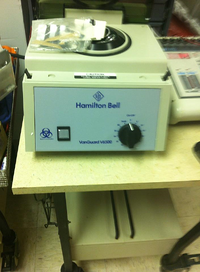
At Crothall Healthcare, it was stressed to us the importance of using proper Hospital and Manufactures procedures in dealing with personnel and with equipment. We learned that there are certain areas of hospitals where you need to wear protective closing to protect both the patient and yourself from the spreading of disease or germs. The Biomedical Technicians that trained us were very helpful, and knowledgeable in explaining these procedures to us. We had access to Service Manuals for each piece of equipment that we worked on. Most of the time the technician would have us read the service manual before we performed any work on that equipment.
Crothall Healthcare’s preventative maintenance data base is called “Team Trace,” and gives the biomedical technician a monthly list of equipment that needs to have routine maintenance performed on them. The Risk number will dictate how often a piece of equipment has maintenance performed on it. Any Risk valued equipment used on patients should be serviced according to manufacturer’s guide lines. We helped perform maintenance on surgery lights, patient monitors, Blood warmers, Autoclaves, EKG’s, Infusion Pumps, and Bladder Scanners. Most of the equipment has a color coded sticker to indicate that it had been serviced along with the date and the technicians name on it. Keeping track of equipment can be difficult at times. The Emergency Room for instance sees a lot of people who come in by ambulance from another hospital or a patient may get transferred with a piece of equipment that doesn’t get returned. Locating equipment and getting to the equipment when it is not being used seems to be two of the biggest problems according to the technicians we trained under.
My first internship with Crothall Healthcare has been a great learning experience. The personnel were very knowledgeable and willing to teach us the right way to do things. They were engaging and made us think when they were training us. We were given time to figure things out for ourselves once we had proven we could fix things safely. I had a great Internship and I am looking forward to my next internship with them.
For more information about the Biomedical Technology program on the Raymond Campus of Hinds Community College you may contact the program instructor Jacob Wright at 601.857.3421 or Jacob.Wright@hindscc.edu .

